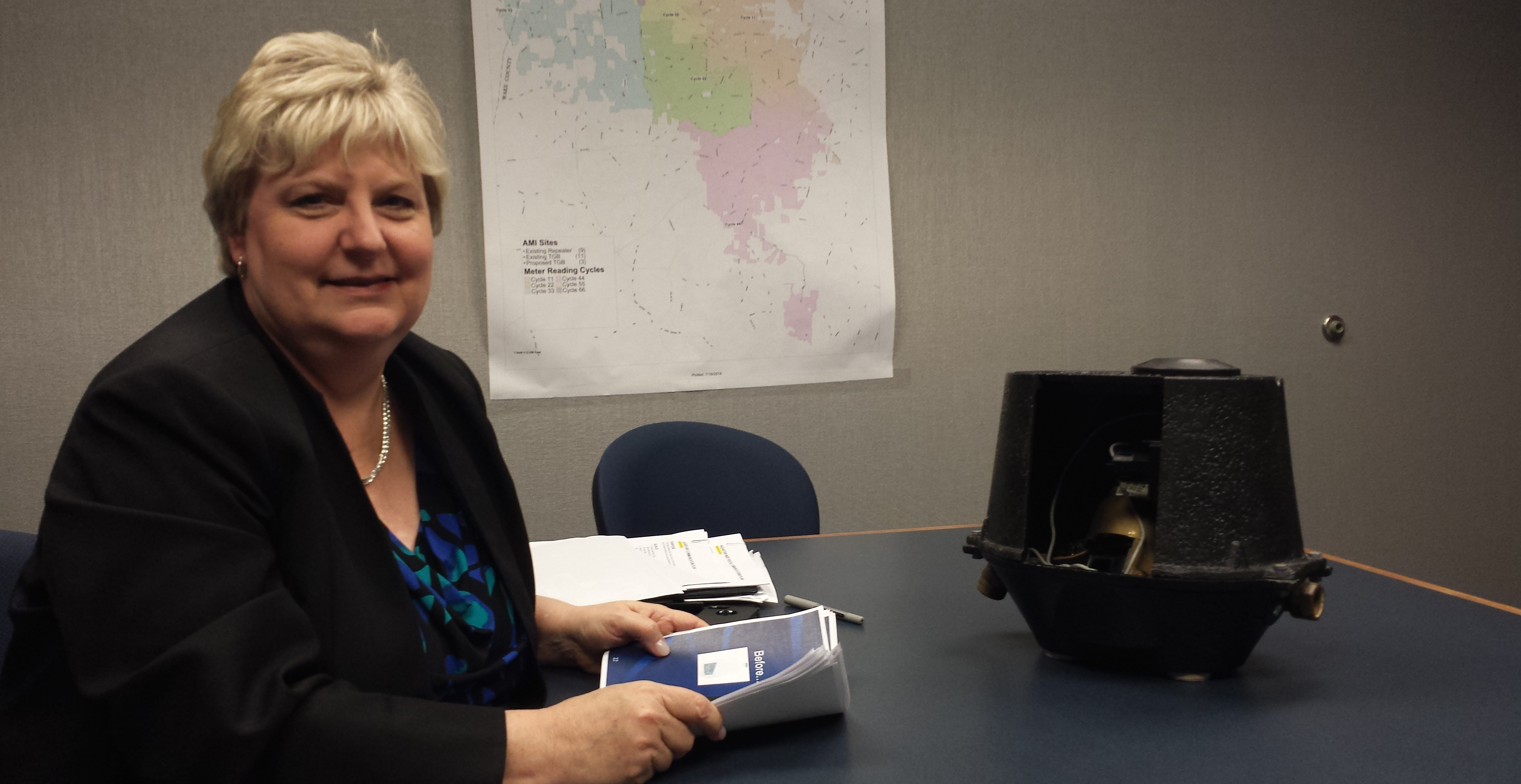North Carolina Suburb Empowers Water Customers With Hourly Usage Updates

FreeBirdPhotos / Shutterstock.com

Connecting state and local government leaders
Cary’s new Aquastar system can help alert residents when they might have a leaky toilet—or, potentially, a more wasteful and costly problem.
GovExec State & Local has been in North Carolina this week checking out some stories in the Raleigh-Durham area. Our previous coverage: Here’s our dispatch from Raleigh on Wake County’s new transit planning effort and our field trip to the infamous 11-foot-8 Bridge in Durham.
CARY, N.C. — Trying to decipher a water bill can sometimes be tricky, especially when there’s a sudden increase in usage from one month to another and there isn’t any explanation about what may have happened. A monthly water reading usually can’t tell you much about the specific dates and times usage shot up.
But water customers in this sprawling Raleigh suburb of more than 150,000 residents now have a new tool to give them more detailed information about their water use and take action when there might be a problem.
It also allows Cary’s town government to be proactive and alert specific customers when there’s an abnormal spike in water use, which might signal a leaky toilet or, potentially, a more severe problem that could result in a huge water bill if not attended to.
Aquastar, as Cary has branded the system, remotely takes water readings every hour and relays them from a water customer meters to the town government's database via a battery-operated radio transmitter.
Aquastar is certainly a tool that encourages water conservation, but it’s also about saving money—not just for customers who might be able to take quick action to fix a leaky toilet, but also for the town, which is forecasting savings of $10 million over the expected 17-year life of the system. (The batteries have a 20-year life span.)
That cost savings made a compelling case for town leaders to move forward on the $17.9 million project.
“When you can tell the town council that you’re saving $10 million, it’s a great story to tell,” says Karen Mills, Cary’s finance director.

Town of Cary Finance Director Karen Mills and a model of one of Cary's Aquastar water meters. (Michael Grass / GovExec.com)
In a conference room in Cary’s town hall complex, Mills uses a model to show how the town’s Aquastar meters work.
Since Cary’s water meters are typically positioned in underground containers near the street curb, local water personnel were able to install 60,000 upgraded meters within existing infrastructure over the course of 18 months and link them up with radio transmitters that relay hourly water readings to the town.
The Aquastar system, powered by Cary-based SAS Analytics, then takes all that information—back-of-the-envelope math suggests that in Cary there are nearly 600 million hourly readings to process annually—and creates detailed usage reports customers can access via the town’s web portal. (Although a customer can view their own usage information, a nosy neighbor does not have access to it.)
Customers can also have customized water usage alerts automatically sent to them on various communications platforms when usage exceeds a certain threshold.
For those who don’t set up customized alerts with the town, Mills says when officials spot abnormal usage spike for particular customers, based on their average consumption, the town will try to contact them via phone or email to alert them.
“It helps us more accurately understand our water use,” Mills says. It also means the town can reallocate resources that would ordinarily be used for “truck rolls”—when the town dispatches water personnel to manually take a water meter reading or check in on a particular customer.
Truck rolls have decreased by roughly 90 percent, she says, which can lead to some big savings considering how expansive Cary’s town limits are. In one year, Cary’s 10 water-meter readers drove 71,000 miles and consumed 7,000 gallons of fuel.
That experience is common for local jurisdictions that implement automatic meter reading systems. In Chesterfield County, South Carolina, for instance, the implementation of a similar system in its rural water service area helped cut back on fuel and personnel costs as well.
But sometimes a water crew is needed to check out a problem. With Aquastar in Cary, if the water use seems really high, the town may dispatch water employees to the property in question to ascertain the possible problem.
In one case, Cary water crews found an unattended garden hose left running and in another situation, a broken water heater that the homeowner wasn’t aware of.
“That is what is so exciting about this system,” Mills says. “We can be proactive instead of reactive with our customers.”
And that transforms the customer service experience.
Instead of customers calling up the town to politely inquire—or complain—about a spike in their water bill, both the customers and the town have access to regular information that might provide clues about the timing and amount of water being used.
That might help customers and the town save water. It also helps reduce pressure on the customer service phone operation.
And all that data on water use helps the rapidly growing Cary plan for the future more effectively and accurately.
“Aquastar is a prime example of how analytics can use the data produced by automated devices to improve service to citizens and save taxpayer money through increased efficiencies,” says Paula Henderson, vice president of the SAS state and local government practice.
As a side benefit for parents in Cary, Aquastar can give them clues when their teenagers might be coming home at night. “You can tell when they came home and flushed the toilet” in the middle of the night, Mills says.
(Top image via FreeBirdPhotos / Shutterstock.com)



